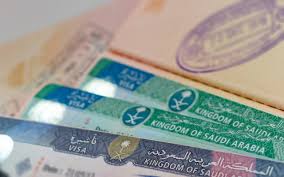Understanding the Saudi Visa: A Comprehensive Guide

The Kingdom of Saudi Arabia, known for its rich cultural heritage and economic significance, has seen a surge in international interest in recent years. Whether for business, tourism, or religious purposes, obtaining a “Saudi Visa” has become a crucial process for many global citizens. This comprehensive guide will delve into the various aspects of the SAUDI VISA, covering its types, application process, requirements, and recent changes in visa policies.
Types of Saudi Visas
Saudi Arabia offers several types of visas, each catering to different purposes. Understanding these types is essential for a successful application.
- Tourist Visa: Introduced in 2019 as part of Saudi Vision 2030, the tourist visa aims to boost tourism. It allows visitors to explore the country’s cultural and historical sites.
- Business Visa: This visa is for individuals visiting Saudi Arabia for business meetings, conferences, or other professional purposes. It is essential for fostering international business relations.
- Work Visa: Issued to expatriates employed by Saudi companies, the work visa allows foreigners to live and work in the Kingdom.
- Student Visa: Granted to students enrolled in educational institutions in Saudi Arabia, this visa supports international education exchange.
- Family Visit Visa: This visa allows family members of residents or citizens to visit the Kingdom for a specific period.
- Hajj and Umrah Visas: These are special visas for Muslims wishing to perform the religious pilgrimages of Hajj and Umrah. They are issued for specific periods during the Islamic calendar.
Application Process
The application process for a Saudi visa can vary depending on the visa type, but there are general steps that most applicants need to follow.
- Online Application: The first step is to complete an online application form through the official Saudi visa portal or the relevant embassy’s website. Applicants must provide personal information, travel details, and the purpose of the visit.
- Document Submission: Required documents must be submitted along with the application form. These typically include a valid passport, recent photographs, and proof of accommodation or invitation letters.
- Visa Fee Payment: Applicants must pay the visa processing fee, which varies based on the visa type and duration of stay.
- Biometric Data: Some applicants may be required to provide biometric data, such as fingerprints and photographs, at designated centers.
- Approval and Issuance: Once the application is reviewed and approved, the visa is issued. This can take anywhere from a few days to several weeks, depending on the visa type and the applicant’s nationality.
Requirements for a Saudi Visa
Each visa type has specific requirements that applicants must meet. However, some general requirements apply to most visas.
- Valid Passport: The passport must be valid for at least six months from the date of entry into Saudi Arabia.
- Photographs: Recent passport-sized photographs that meet specific guidelines must be provided.
- Proof of Accommodation: Applicants must show proof of accommodation, such as hotel reservations or an invitation letter from a host in Saudi Arabia.
- Financial Proof: Evidence of sufficient financial means to cover the stay in Saudi Arabia may be required.
- Travel Itinerary: A detailed travel itinerary, including flight bookings, is often necessary.
- Medical Insurance: Some visa types, particularly the tourist visa, require proof of medical insurance covering the duration of the stay.
Recent Changes in Saudi Visa Policies
Saudi Arabia has made significant changes to its visa policies in recent years, aligning with its Vision 2030 initiative to diversify the economy and promote tourism.
- Introduction of the E-Visa: The e-visa system was launched to simplify the application process for tourists. This online system allows visitors from eligible countries to apply for and receive their visas electronically.
- Relaxation of Dress Code for Tourists: The dress code for female tourists has been relaxed, allowing them to wear modest clothing without the requirement of an abaya, though modesty is still encouraged.
- Expansion of Eligible Countries: The list of countries whose citizens are eligible for the Saudi e-visa has been expanded, making it easier for more travelers to visit the Kingdom.
- Longer Visa Validity: Some visas now offer longer validity periods, allowing for multiple entries and extended stays, thus promoting longer and repeated visits. SAUDI ARABIA VISA ONLINE
Tips for a Successful Visa Application
Applying for a Saudi visa can be straightforward if you follow these tips:
- Accurate Information: Ensure all information provided in the application form is accurate and matches the details in your supporting documents.
- Early Application: Apply well in advance of your planned travel date to account for processing times and potential delays.
- Follow Guidelines: Adhere to the specific requirements and guidelines provided for each visa type, especially regarding photographs and document formats.
- Seek Assistance: If unsure about any part of the application process, consider seeking assistance from a visa service provider or the relevant Saudi embassy.
Understanding the Cultural Context
Visiting Saudi Arabia involves understanding and respecting its cultural and religious practices. Here are some key points to keep in mind:
- Respect for Religious Practices: Saudi Arabia is a deeply religious country, and visitors should respect Islamic practices. This includes dressing modestly and being aware of prayer times, when many businesses close temporarily.
- Gender Segregation: Certain public places, such as swimming pools and beaches, may have separate areas for men and women. Visitors should adhere to these rules.
- Prohibited Items: Items such as alcohol, pork products, and certain medications are prohibited in Saudi Arabia. Ensure you are not carrying any restricted items.
- Photography Restrictions: Be cautious when taking photographs, particularly in sensitive areas such as government buildings and religious sites.
Impact of Vision 2030 on Saudi Visa Policies
Vision 2030, the ambitious plan unveiled by Crown Prince Mohammed bin Salman, aims to transform Saudi Arabia’s economy and society. One of the key components of this vision is to boost tourism and international business, which has directly impacted visa policies.
- Tourism Promotion: The introduction of the tourist visa and e-visa system is a direct result of Vision 2030. The goal is to attract millions of tourists annually, contributing to the economy and showcasing Saudi Arabia’s cultural heritage.
- Business Opportunities: By easing visa restrictions for business travelers, Saudi Arabia aims to become a global business hub. This move is expected to attract foreign investment and facilitate international trade.
- Cultural Exchange: By encouraging more visitors, Saudi Arabia seeks to foster cultural exchange and improve its global image. This is part of a broader effort to open up the country and reduce its dependence on oil revenue.
Challenges and Considerations
While Saudi Arabia has made significant strides in improving its visa policies, there are still challenges and considerations for prospective visitors.
- Human Rights Concerns: International human rights organizations have raised concerns about certain aspects of Saudi Arabia’s legal and human rights practices. Visitors should be aware of the legal system and its implications.
- Regional Instability: The geopolitical situation in the Middle East can impact travel plans. It’s essential to stay informed about the regional context and any travel advisories issued by your home country.
- Cultural Sensitivities: Understanding and respecting local customs and traditions is crucial. Saudi society is conservative, and visitors must navigate cultural sensitivities carefully.
Conclusion
Obtaining a Saudi visa is a structured process that requires careful preparation and understanding of the specific requirements for each visa type. The recent changes in visa policies, driven by Vision 2030, have made it easier for tourists, business travelers, and others to visit Saudi Arabia. However, it’s essential to respect the cultural and legal framework of the country while staying informed about any potential challenges. By following the guidelines and tips provided in this comprehensive guide, prospective visitors can navigate the Saudi visa application process successfully and enjoy a rewarding experience in the Kingdom.
